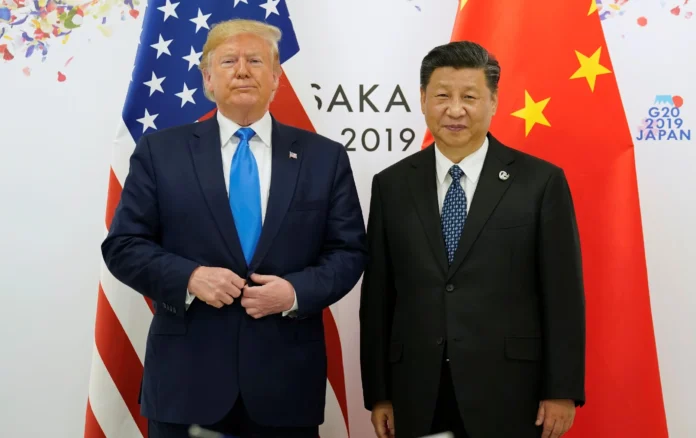Authors: Graham Allison, Christopher Li
Affiliation: Harvard Kennedy School of Government.
Organization/Publisher: The National Interest
Date/Place: March 27, 2020/ U.S.
Type of Literature: Article
Word Count: 2680
Link: https://nationalinterest.org/feature/war-against-coronavirus-china-foe%E2%80%94or-friend-138387
Keywords: The U.S., China, Coronavirus, Common Enemy, Rivalry, and Partnership
Brief:
The article comes within the context of a research project named “Avoiding Great Power War” led by Graham Allison with the participation of his assistant Christopher Li at Harvard University’s Belfer Center for Science and International Affairs. Allison, a well-known realist scholar who defines the US-China relations as intense competitive relations, along with Li raise the question of whether the US and China can be ruthless rivals and intense partners at the same time? The authors argue that the partnership between the US and China in this urgent circumstance is a strategic imperative even if the duration of this partnership is short-lived. Instead of mutual demonization, the US and China must realize that each power needs the other to defeat this common fatal enemy, because the common interests and gains will be more, and the losses that both may incur will be less if cooperation will be done appropriately. Indeed, the embodiment of such mutual cooperation will not be easy as intense rivalry between the two powers is a basic feature of their long-term future relationship; China’s rise really threatens to displace the United States from the top of the international system. China, which started the current century with a GDP less than a quarter of its American counterpart, today comprises a greater economy that has surpassed the United States which “teeters on the brink between an extended recession and a genuine depression.” Also, “a military that was forced to back down in the Taiwan straits crisis of 1996 when the US sent two carriers to the theater has over the past two decades built up an arsenal of ‘carrier-killer’ missiles that would force the US to make different choices today.” If the US cannot successfully overcome this pandemic today, China may be more aggressive in the foreseeable future and even subdue Taiwan by force under its rule. After the authors compare how China and the US have responded to COVID 19 (a full positive evaluation for China and a clear US confusion), they emphasize that the two powers’ refusal to cooperate will have severe consequences in the greater competition for global leadership. Therefore, the common challenge that Coronavirus poses to the world today opens an opportunity to intensify joint scientific cooperation between the two powers and may open other horizons of cooperation that reduce rivalry among them; especially because scientific research is inherently characterized by global cooperative openness. At present, a third of all American doctorate degrees in STEM are earned by Chinese students. For this purpose, the authors outline three major areas in which the two powers can partner today to confront the Corona pandemic. The first is sharing data related to this new and uncertain virus, noting that the Chinese’ early sharing of data they had about the virus with the World Health Organization had a huge positive scientific impact that enabled scientists and governments to launch their research or take appropriate measures against the epidemic. The second is strengthening global diagnostic and health procedures. For example, of the $22 billion worth of essential medical equipment that the United States imports annually, about a quarter of it came from China before the tariff war; such cooperation should be revived. The third area is biomedical research. The authors praise the cooperation agreement recently concluded by the Harvard Medical School with the Chinese Guangzhou Institute to defeat COVID 19. The leader of the Chinese partner is Zhong Nanshan, who was the first doctor to identify SARS in 2003. Finally, citing what scientists emphasize, the authors recommend the importance of scientific cooperation between the two powers, as it leads to better results and makes the current circumstance generate more benefits for both nations and the entire world. And thus, the partnership between China and the United States today is a strategic necessity, albeit a limited-term partnership.
By: Djallel Khechib, CIGA Senior Research Associate




